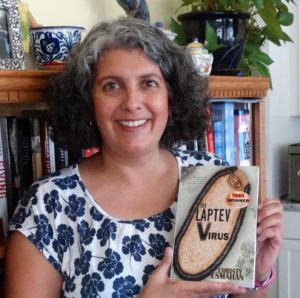
One particularly egregious way that we contaminate our oceans is with nurdle spills. Nurdles are tiny pellets of hard plastic, about a ¼ inch in diameter, (the size of a lentil) that are fed into machines that create plastic objects, from bags to toys to water bottles and the millions of other things we make out of plastic. Nurdles are shipped in huge bags from the factories where they are produced to manufacturing companies all over the globe. And all too often, there are accidents—trains are derailed and lose their cargo, 18-wheeler trucks flip over, boats crash or sink, and millions of nurdles are cast into the environment, often ending up in rivers or the ocean.
Tragically, nurdles look like eggs, and so they are greedily eaten by fish, turtles, birds and even whales. And since plastics in the ocean absorb toxic chemicals, not only do nurdles physically make small fish sick by taking up space in their intestines and providing no nutritional value, but they also serve as chemical poison pills, and the toxins they have absorbed are then absorbed by the fish and collected, accumulated, into fish tissues. When a bigger fish eats a smaller fish, that bigger fish then gets all those toxins and accumulates them, in turn.
Thus, keeping nurdles out of our waterways is essential. And more and more, companies that have nurdle spills are being sued. The Post and Courier updated an article just last week about a Charleston plastic company that had been citied for a nurdle spill. You can read that article here.
Unfortunately, the Charleston spill is not an isolated incident. In 2017 a ship off the coast of South Africa spilled 2.25 billion nurdles into the ocean, a billion of which later washed up on the shores of Australia. And there are dozens of smaller spills every month of the year.
As a matter of fact, according to a CBS article published December 14, 2019, 250,000 tons of nurdles are added to our oceans every year. Astounding.
Obviously, no company intentionally loses its nurdles. But accidents happen frequently. And there is also negligence, like when nurdles are lost as they are being on- or off—loaded to trucks or trains. These nurdles cannot be used once they are dirty, so they are simply left to wash away.
So what can be done? If we collectively consumed less plastic, companies would create fewer nurdles and that would help reduce pollution. So, take a look at the plastics you’ve used today, this week, and this month. Can you re-use, reduce or recycle more of it?
And the next time you’re on the beach of an ocean, a Great Lake, or even a river bank, look for nurdles. I find them everywhere. Then report your findings on the Great Nurdle Hunt website. There is also a Facebook page where you can report any nurdles found in the Gulf Coast, between Florida and Texas (Nurdle Patrol).
Further Reading:
Virgin plastic pellets are the biggest pollution disaster you’ve never heard of


